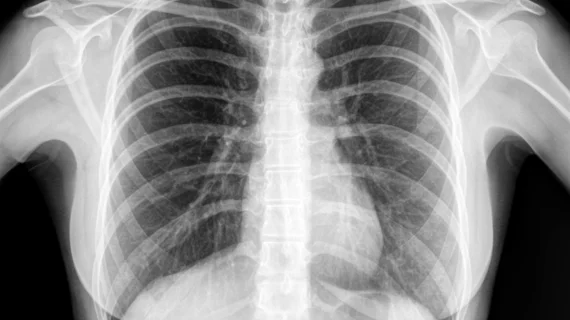Zebra Medical Vision’s AI solution for pleural effusion gains FDA clearance
Zebra Medical Vision has received FDA clearance for an AI solution designed to identify pleural effusion in chest x-rays.
The solution, HealthCXR, now joins Zebra Medical Vision’s growing AI1 bundle of AI-focused offerings for evaluating chest x-rays. This is the company’s fourth FDA clearance overall. Most recently, HealthPNX for detecting signs of pneumothorax was cleared in June.
“We are happy with the fourth FDA nod for an additional medical solution that will leverage AI in healthcare and improve patient care,” Eyal Gura, co-founder and CEO of Zebra Medical Vision, said in a prepared statement. “Adding a greater number of capabilities to our chest x-ray package is key for increasing doctors’ trust and the use of AI.”
“Based on the real-world application of this product, we saw that Zebra-Med's automatic identification of pleural effusion on chest x-rays can play a significant role in triage,” J.J. Visser, MD, PhD, a radiologist at Erasmus University Medical Center in the Netherlands, said in the same statement. “It could be a relevant indicator for acute cardiopulmonary disease, so that clinical management can be adopted, as soon as possible, in order to provide optimal patient care.”

